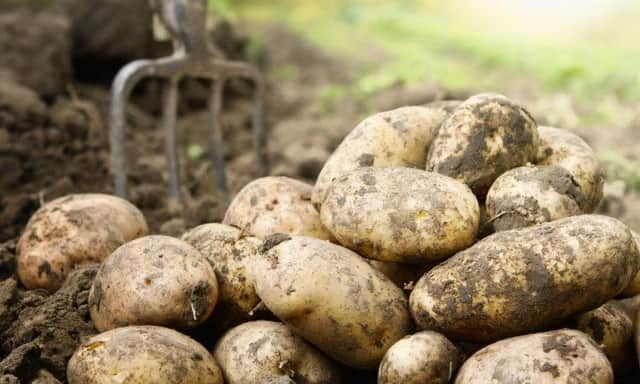Post-Brexit seed potato deal with EU still deadlocked


But while the “both ways or no ways” decision on such trade might help stave off short-term disaster within the Scottish seed sector, commentators feel it will do little to restart the trade.
And fresh impetus will be needed to break the political deadlock required to secure an agreement on equivalence, which would allow sales of Scotland’s high-health status seed to the EU to resume.
Advertisement
Hide AdAdvertisement
Hide AdThe ban on such sales was a result of the failure to include an agreement on equivalence for the seed sector in the Trade and Cooperation Agreement with Europe at the end of 2020, an omission which brought the £13.5 million worth of trade to an end overnight.
However, despite the deal stopping 30,000 tonnes of seed going to Europe (and, under the wording of the protocol, to Northern Ireland too), the UK government granted a six-month derogation which allowed seed from Europe to enter Great Britain.
When this extension expired at the end of June, the decision was taken not to renew it – a move which growers hope might bring Europe back to the negotiating table.
“We are delighted that the principle of seed potato trade between the EU and GB having to go ‘both ways or no-ways’ has been upheld by Defra,” said Mike Wilson, chair of NFU Scotland’s potato working group.
He said that extending the authorisation for a further six months had the potential to devastate Scotland’s seed potato industry, impacting many businesses and Scotland’s entire rural economy.
Welcoming the end of the derogation Wilson said, “This means that potato growers throughout Britain will have to source their seed from within Britain, which is good news for Scotland’s seed potato sector.”
However, he admitted that the GB market differed significantly from the EU market and acknowledged that the potato sector had ‘quite a task’ on its hands to develop and supply this internal market.
“In the meantime, NFUS will be working with government and our European counterparts to regain access to the EU market.
Advertisement
Hide AdAdvertisement
Hide Ad"This will not be an easy task as the EU Commission has made it very clear on several occasions that the seed potato trade is a casualty of Brexit.”
Grower Andrew Skea, who formerly exported a considerable amount of seed to Europe, agreed that it could be difficult to overcome the ideological barriers which had stymied talks.
However, he hoped future progress on the NI protocol might help take down some of the barriers, as might a different attitude from the US Biden administration on a possible trade deal with the UK.
But while the ban on imports might create difficulties for some growers obtaining their preferred varieties in the south, he said that alternative varieties of seed were available from Scotland.
Comments
Want to join the conversation? Please or to comment on this article.